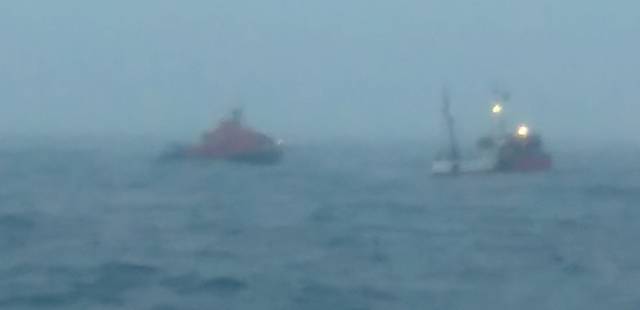The Courtmacsherry RNLI All Weather Lifeboat has arrived in Union Hall with the stricken 60–ft fishing boat that had got into difficulties some seven hours earlier. The crew reported via a Mayday call at 5.46 pm last evening that they were sinking some 20 miles off the Seven Heads in West Cork. In a difficult tow, in very poor conditions, the lifeboat moored the casuality at the pierhead and will soon proceed back on the two hour trip to base in Courtmacsherry where they will refuel and get ready for whenever the next callout will happen.
The Navy vessel LE Niamh stood by as the powerful Trent Class Lifeboat towed the trawler, while the Lifeboat crew at the same time used its mobile pump to keep the water ingress under control.
"We are all pleased that this evenings rescue was carried out efficiently by Coxswain Sean O'Farrell and his voluntary crew of five including local farmer Colin Bateman who manned the mobile pump as he boarded the Fishing Vessel" said Courtmacsherry Lifeboat Voluntary Operations Manager Brian O'Dwyer who also praised the fast response of the crew this evening, when every minute gained was precious.
The crew on this evenings callout were Coxswain Sean O'Farrell and voluntary crew members Pat Lawton (Mechanic), Colin Bateman, Ciaran Hurley, Dara Gannon and Conor Dullea.






























































